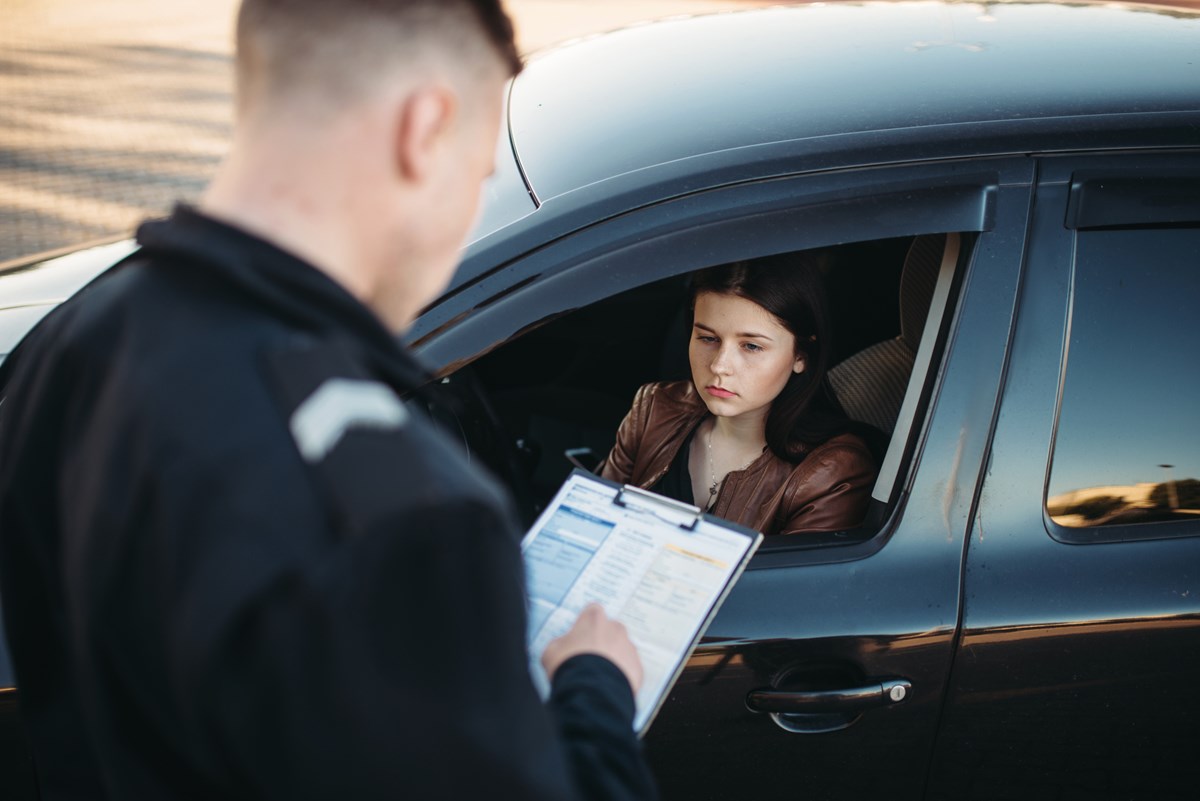A Ramsey County Attorney announced this month that his department will no longer prosecute felony charges that result from non-public safety traffic stops.
Readers may be unfamiliar with Ramsey Country, but it is the second largest in Minnesota and the home of St. Paul. Its geographical location is important because it is next door to Hennepin County, which is where the now infamous police killing of George Floyd took place. Floyd’s death instigated protests and demands for policing reform across the globe in 2020, and was notably the result of a non-public safety police stop. He was initially approached by police under the suspicion that he had counterfeited a $20 bill.
The County Attorney, John Choi, said his actions were “aimed at fundamentally changing the use of non-public safety traffic stops by police.”
These kinds of stops typically occur when police stop a citizen for things like a broken taillight, tinted windows, or expired tags. But across the country, police often use these interactions as an excuse to search cars and individuals for other evidence that might lead to a more serious charge.
In a press release about the new policy, Choi said, “These types of stops disproportionately affect black and brown communities and undermine the trust in the work police do every day to serve and protect the public...The new policy was developed in collaboration with local law enforcement, philanthropic leaders, county residents and national partners such as the Vera Institute of Justice.”
Choi also said his office would “no longer favor officers asking people for consent to search their vehicle.”
“That practice, in my view, is coercive and it actually leads and breeds more distrust in our community,” Choi said. “If there is no reason to ask for consent and you present a case to us that’s based solely on that … we will also not prosecute that case.”
At a press conference to announce the new protocol, Choi was joined by several local leaders including St. Paul Mayor Melvin Carter who said, “We need a new approach, we need a new way because we are surrounded every day by reminders that our traditional approaches have not brought about the outcomes that we desire in our community… In St. Paul African American drivers are four times more likely to be pulled over… We know that must change.”
Why This Is a Big Deal
Ramsey County’s new policy is part of a larger movement in the criminal justice reform world that is encouraging prosecutors (often called District Attorneys or County Attorneys) to use their tremendous power to effect change.
What many may not know is that, historically, prosecutors and their associations have worked aggressively to block justice reform policies at the legislative level, often working on the taxpayers’ dime to kill reforms the vast majority of people want to see. With that in mind, the transition to reform-minded prosecutors, such as Choi, is a significant win and indicative of a hard-won battle in the court of public opinion. These prosecutors are elected and increasingly they are realizing their voters want to see change.
Choi’s actions are in line with a particular campaign within this movement, led by the Vera Institute, called Motion for Justice. On their website, they describe their initiative like this, “the program helps prosecutors bridge the gap between law enforcement agencies and the communities they serve by creating lasting policies and practices that tackle the racial injustices deeply rooted in the criminal legal system. As part of this program, the Vera Institute of Justice partners with prosecutors and examines the current impact of the criminal legal system’s history of oppression; analyzes why stark racial disparities exist; and encourages prosecutors to partner with community leaders, recognizing that the people closest to the problem are closest to the solution.”
Others in the program include the offices of Ingham County Prosecutor Carol Siemon in Michigan; Suffolk County District Attorney Rachael Rollins in Massachusetts; St. Louis Circuit Attorney Kim Gardner; and Commonwealth's Attorney for Arlington County and the City of Falls Church Parisa Dehghani-Taft, and many others.
The Data
When it comes to non-public safety traffic stops, two things are certain: they do not increase public safety, and they disproportionately impact people of color.
The research that backs both of these statements is extensive, conclusive, and worth readers spending more time with. But to give a brief overview, here are two notable studies.
Research from the University of South Carolina found that black drivers in North Carolina were 63 percent more likely to be pulled over and 115 percent more likely to be searched during a traffic stop than white drivers. This finding is despite the fact that contraband was more likely to be found on white drivers.
And a 2019 study by the Policing Project at the New York University School of Law found that in Nashville: “Traffic stops do not appear to have a significant impact on long-term crime trends. As the number of traffic stops declined between 2012 and 2017, crime rates remained quite flat.” And “traffic stops also do not appear to have any effect on crime in the short-term.”
Non-public safety traffic stops fail to make communities safer and consistently show racial disparities in their usage, ultimately leading to further racial disparities throughout the criminal justice system.
They also lead to corruption.
Traffic stops enable civil asset forfeiture, which has aptly been characterized as policing for profit, under which police steal more from citizens than burglars some years. Thanks to the erosion of the Fourth Amendment in the courts over the years, which has significantly lowered the barriers for search and seizure, police can take people’s things if they merely suspect them of a crime.
Police therefore use traffic stops as a way to search people and cars for cash that they can seize.
Additionally, non-public safety traffic stops target poor people, often compounding the government’s role in creating a permanent underclass. By that I mean that these stops are frequently for offenses like expired tags or broken taillights—things that the person may not have fixed because they already do not have the means to do so. By ticketing them for these things we merely push people further into poverty and harass citizens for non-violent violations that shouldn’t be on the books to begin with.
Lastly, traffic stops put police in needless danger, as they do the citizens. Everytime a police officer encounters a citizen there is a chance for escalation, accidents, and ultimately death. Add to that the fact these stops take place on the side of busy interstates and one can easily see how non-public safety traffic stops open the door for potential death of either party for no good cause.
For these reasons, and likely more, the use of non-public safety traffic stops should be done away with. We do not need police to act as road pirates, nor do we need them to go out looking for trouble. We need them to solve actual violent crimes, which they currently do very little of by the way. That said, bearing some change—like Choi’s new policy—this is a reform that was unlikely to occur because police and cities make so much money off of the aforementioned practices.
The Takeaway
While police receive much deserved criticism for their practices, it is always important to remember that they operate within the confines of a larger system—oftentimes being evaluated by the number of arrests and charges they bring in, and the number of those that lead to convictions.
At the same time, prosecutors carry tremendous power in the system and often influence the decisions police departments make and the metrics they use.
For government actors, just as those in a free market, incentives matter. For too long our system has incentivized policing for profit, targeting poor people, and needless interactions with police that not only fail to increase public safety, but often lead to innocent people dying in the process.
This new kind of policy instead incentivizes police to put their focus on other areas of their jobs, namely, solving real, violent crime and intervening on the public’s behalf.
We know policing needs a major overhaul in this country, and this new policy seems like a step in the right direction.

